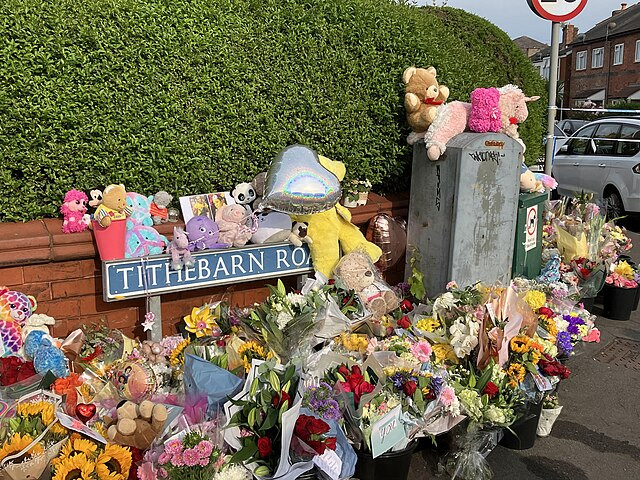A teenager accused of fatally stabbing three young girls at a dance class in northwest England has been charged with additional offenses, including the production of the deadly toxin ricin and possession of an al-Qaeda training manual. British prosecutors announced on Tuesday that 18-year-old Axel Rudakubana now faces a terrorism-related charge in addition to three counts of murder and ten counts of attempted murder.
The horrifying attack took place in July during a Taylor Swift-themed dance class in the seaside town of Southport. The victims, all young girls-Alice da Silva Aguiar, 9, Elsie Dot Stancombe, 7, and Bebe King, 6-were stabbed to death. Eight other children and two adults also suffered injuries in the brutal attack, making it one of the most devastating assaults on children in recent UK history.
Merseyside Police revealed that subsequent searches of Rudakubana's home uncovered a biological toxin, ricin, and an al-Qaeda training manual titled "Military Studies in the Jihad Against the Tyrants." Ricin, a highly lethal substance derived from castor beans, is one of the deadliest toxins in existence, with no known antidote. The discovery of the poison led to new charges against the teen for producing a biological weapon, a violation of UK law prohibiting the creation and possession of such substances.
Police officials confirmed that while the attack itself has not been classified as a terrorist incident, Rudakubana's possession of terrorist-related material, including the training manual, warranted a terrorism charge under the UK's Terrorism Act. "The matter for which Axel Rudakubana has been charged with under the Terrorism Act does not require motive to be established," said Merseyside Chief Constable Serena Kennedy in a statement. "For a matter to be declared a terrorist incident, motivation would need to be established."
Kennedy also addressed concerns about the ricin found in Rudakubana's home, reassuring the public that an extensive investigation determined that there was minimal risk to the community. "When the ricin was discovered, all necessary steps were taken so we could be sure that no one was at risk," Kennedy explained. Dr. Renu Bindra, a senior medical adviser at the UK Health Security Agency, confirmed that "there was no evidence that any victims, responders, or members of the public were exposed to ricin either as part of the incident or afterwards."
Rudakubana, who was 17 at the time of the attack, was initially charged with three counts of murder, ten counts of attempted murder, and possession of a knife. His trial is set to begin in January 2025, and the new charges add a complex layer to an already devastating case that has gripped the nation.
The aftermath of the attack led to widespread protests across the UK, fueled by misinformation circulated on social media. False reports suggested that Rudakubana, born in Wales, was an asylum seeker, which sparked anti-immigrant demonstrations that turned violent. Rioting ensued in several parts of the country, marking the worst civil unrest the UK has seen in over a decade. More than 1,000 people were arrested, and hundreds have since been sentenced to jail for their involvement in the disorder.
Merseyside Police, aware of the sensitivity of the case, urged the public to avoid speculation. "Don't believe everything you read on social media," Kennedy cautioned. "We must not lose sight of the families of Elsie, Bebe, and Alice, who are still grieving, and the families of those children and adults who were injured and affected by what happened on that day. We all need to do the right thing by them to ensure the justice process is not prejudiced."






